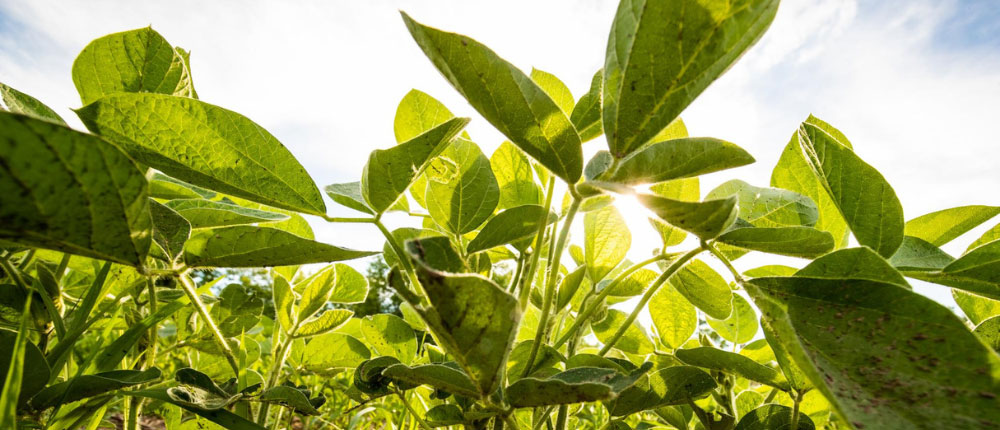Most adjuvants include active ingredients made from unrefined vegetable or petroleum oil. These ingredients give adjuvants the properties to perform their intended function, whether it is to enhance the biological function of a crop protection product or alter the physical characteristics of a spray solution for maximum performance.
Activator adjuvants, like drift control agents and deposition aids, contain ingredients that help prevent the unintentional off-target application of crop protection products and increase the ability of water-soluble pesticide particles to stick to a plant’s surface.
As retailers continually look for new offerings to better serve customers, they may consider a soy-enhanced drift control agent and deposition aid. A soy-enhanced adjuvant, unlike other adjuvants, uses refined soybean oil, which contains fewer impurities to increase adjuvant quality and performance for growers and retailers alike.
Understanding the benefits: mixability and storage
Soy-enhanced adjuvants offer superior mixability to help herbicides, insecticides, and fungicides stay on the target pests, leading to more effective control in-season. In the off-season, soy-based adjuvants provide additional storage stability, especially in cold weather, allowing retailers to keep product on hand and available when customers need them without risking any decrease in quality.
High efficacy, low use rate
For growers, soy-enhanced drift control and deposition aids adjuvants can be used at a fraction of the rate of competitors, which saves money, while maintaining the performance and effectiveness of the product.
Grown by and for farmers
Soy-based adjuvants also create value for farmers who grow, harvest, and market soybeans through the cooperative system. After soybeans are crushed and the oil is refined at CHS facilities, they are made into adjuvants, which are applied with crop protection products to the same fields in which they were grown to protect future crops and grower profits.

Soy-enhanced adjuvant options
Our exclusive family of soy-enhanced adjuvants includes soybean oil refined by CHS from soybeans grown by CHS farmer-owners.
Advatrol™ is a highly concentrated blend of emulsifiers and methylated seed oil. The product is designed for use with a broad range of herbicides where a high surfactant oil concentrate adjuvant is recommended or allowed. High surfactant oil concentrates allow lower use rates than standard oil adjuvants. Advatrol increases contact activity and penetration of the spray, while also providing uniform coverage on leaf surfaces.
Covrex™ is a highly concentrated blend of emulsifiers and paraffin oil. Covrex is designed for use with a broad range of herbicides where an oil concentrate adjuvant is recommended. Covrex increases contact activity and penetration of the spray, while also providing uniform coverage on leaf surfaces at half the use rate of a standard crop oil. Covrex contains a highly refined soybean oil that improves the performance and handling characteristics of traditional high surfactant oil concentrates.
Petrichor™ is an NPE-free oil emulsion deposition and drift management agent specifically designed to suppress off-target drift and increase contact activity and penetration of spray applications. Improves uniformity and density of spray droplets that maximizes deposition by increasing droplet size and maintaining a more uniform spray pattern. Petrichor will improve the performance of herbicides, fungicides, and insecticides by increasing canopy penetration and deposition, improving humectancy, and maintaining uniform droplet size.
Tapran™ is a multi-functional, high-efficacy adjuvant that helps activate herbicides for better performance against tough-to-control weeds, including later season weeds. Its unique formulation includes tallow amine which acts as an emulsifier and surfactant to help herbicides spread over the leaf for better absorption. Tapran contains deposition aids that minimize off-site spray droplets and improve canopy penetration and plant coverage.
To learn more about adjuvants, contact your CHS agronomy representative.






